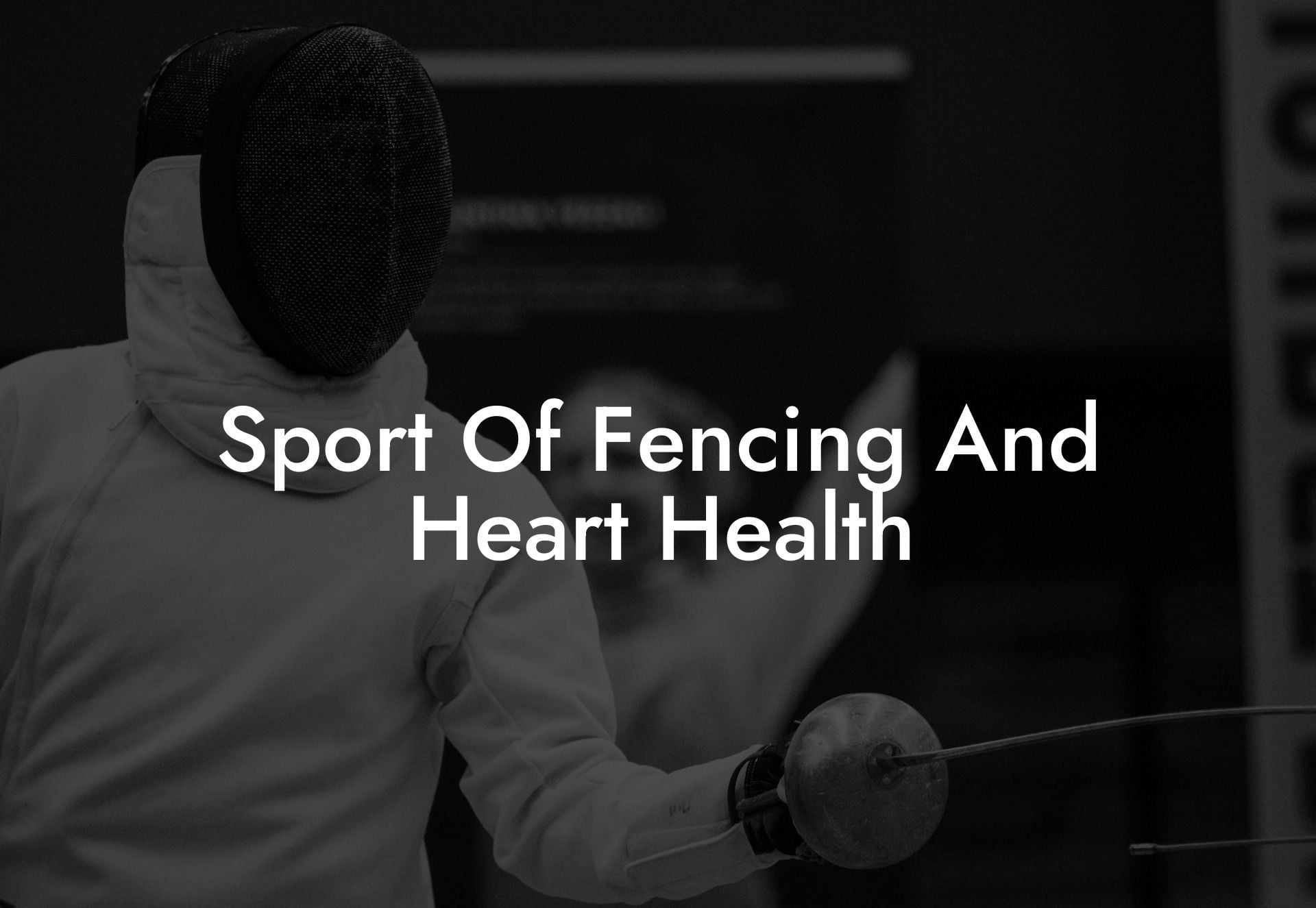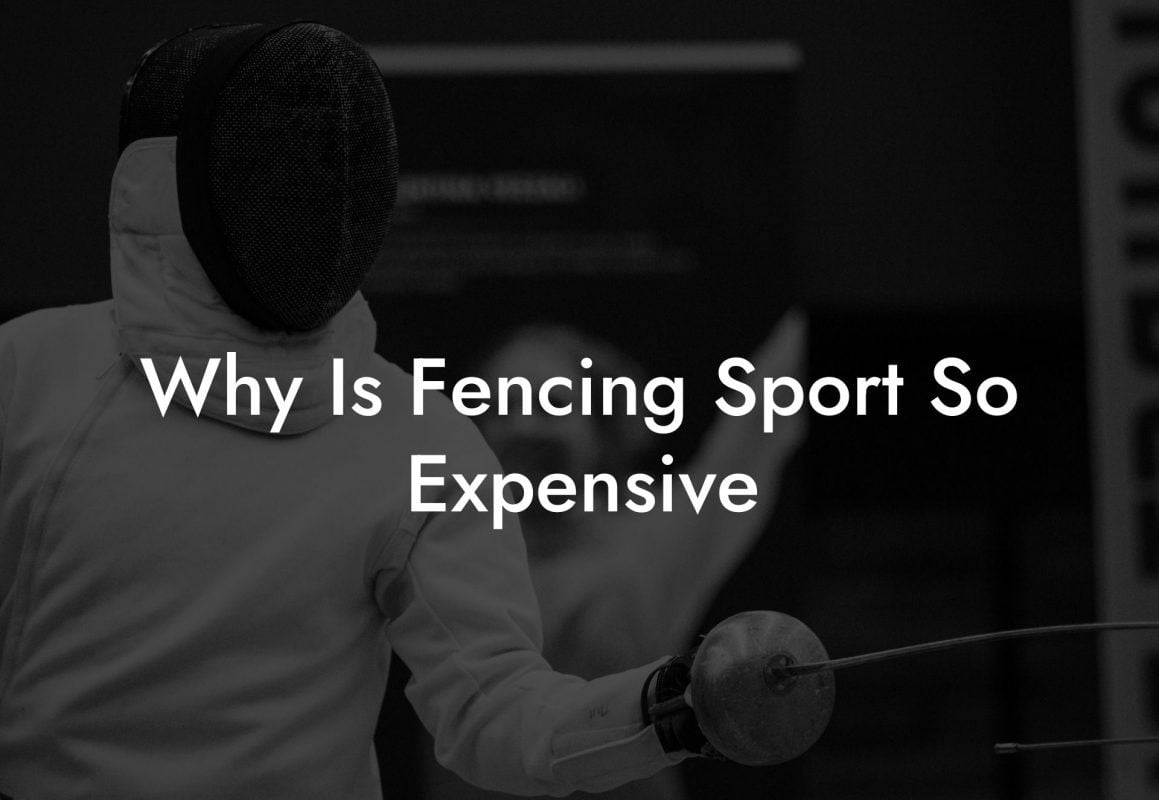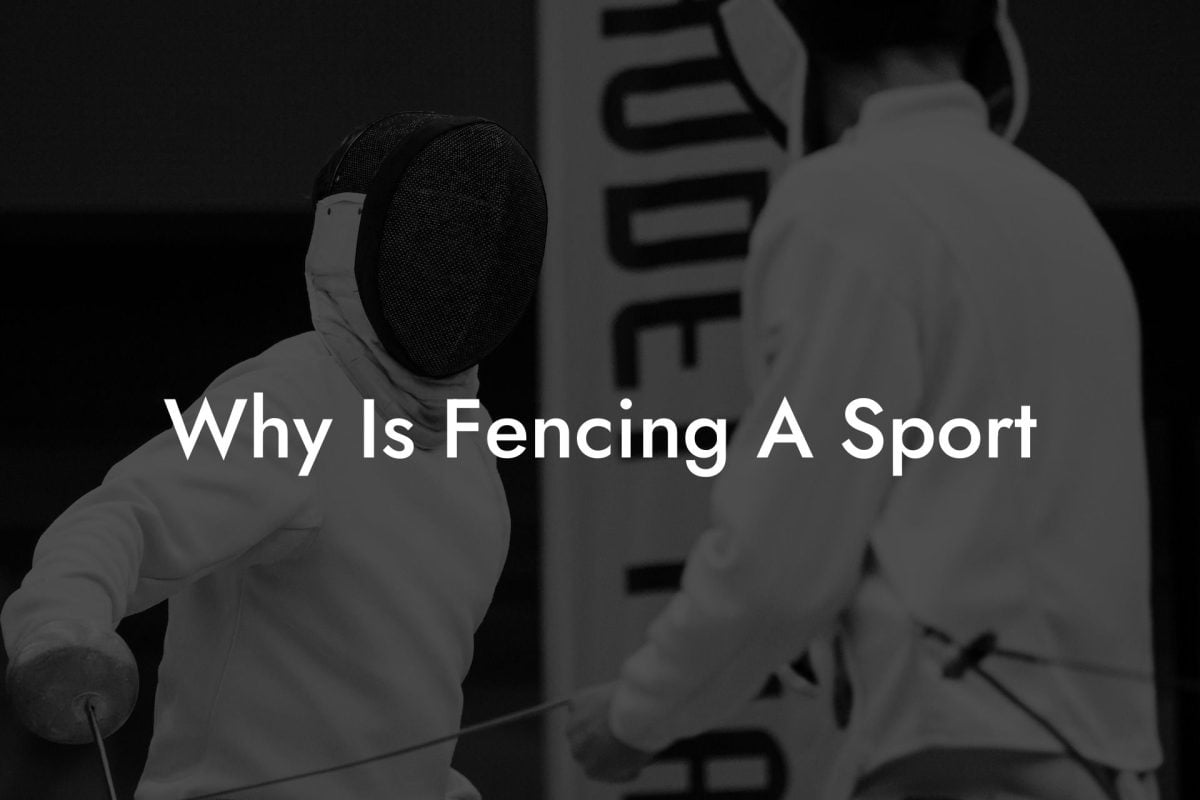Discover the connection between the sport of fencing and heart health, and how participating in this elegant and strategic activity can benefit your overall cardiovascular well-being.
Sport Of Fencing And Heart Health Table of Contents
Overview of Fencing
Fencing is a fast-paced and highly strategic sport with roots dating back to ancient civilizations. This modern competitive combat sport involves two opponents facing off against each other in an attempt to score points by striking predefined target areas on the body with their weapon. There are three main types of fencing – foil, epee, and saber – and each has its own unique set of rules, techniques, and strategies.
Fencing as a Cardiovascular Exercise
The sport of fencing provides an excellent full-body aerobic workout that can cater to a variety of fitness levels. The constant movement required by the sport helps improve endurance and stamina, both of which are essential components of cardiovascular fitness.
The benefits of regular cardiovascular exercise include:
- Reduced risk of heart disease
- Improved circulation and blood pressure
- Increased good (HDL) cholesterol levels
- Enhanced glucose metabolism and insulin sensitivity
- Reduced risk of stroke and other related health issues
Aerobic vs. Anaerobic Exercise
Fencing is unique in that it can provide both aerobic and anaerobic benefits to its participants. Aerobic exercise involves sustained activity at a moderate intensity level, while anaerobic exercise is characterized by short bursts of high-intensity effort. Fencers can experience both types of activity during a match due to the varying nature of the bouts and movements. Moments of high-intensity effort followed by brief periods of rest offer a more comprehensive cardiovascular workout, improving overall fitness and heart health.
Secondary Benefits of Fencing for Heart Health
Aside from the direct cardiovascular benefits, fencing has several other health advantages that can indirectly contribute to improved heart health:
- Weight management: Regular participation in a physically demanding activity like fencing can help with weight management, which plays a significant role in maintaining a healthy heart.
- Stress reduction: Fencing can also act as a form of stress relief for many individuals, as the mental focus required can help to distract from everyday worries. Reducing stress is essential for optimal heart health.
- Social connections: Engaging in a sport with a community of like-minded individuals can provide opportunities to develop strong social connections. This is beneficial for mental health, which in turn affects heart health.
Sport Of Fencing And Heart Health Example:
For example, an individual with a sedentary lifestyle begins attending fencing classes three times a week. Over time, they notice improvements in their cardiovascular endurance, having more energy to complete daily tasks, and feeling a reduction in stress. As they progress in the sport, they make friends with fellow fencers, further improving their overall mood and well-being. Combined, these factors contribute to better heart health and a reduced risk of cardiovascular-related issues.
We've explored the powerful association between the sport of fencing and improved heart health. By regularly participating in this engaging physical activity, you can enjoy a wide range of cardiovascular benefits while also honing your skills in a challenging and rewarding sport. With Anchorage Fencing Club as your guide, you'll have access to the best equipment and knowledge to enhance your fencing experience. So why not give it a try and reap the benefits that fencing has to offer? Don't forget to share this article with your friends and explore our other guides at Anchorage Fencing Club.













